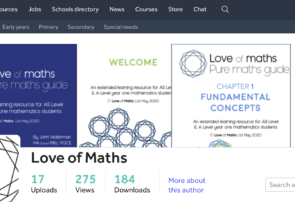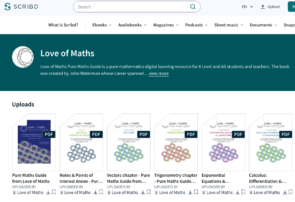Podcast – How the book is structured and how it is intended to be used

Unlike most school textbooks, which for extremely good reasons are set out in a sort of gradual way. So you may do a little bit of coordinate geometry to start with early on. And then you have a break from that, and you may do some algebra, and then later on, do some trigonometry, and then come back to each of those subjects later on. As you get to consolidate what you’ve done before and take it a bit further.
I haven’t set it out like that, because it’s never going to match the way textbooks would split it up anyway. So more in terms of a guide or a resource, each chapter covers a discrete topic. So, for instance, there’s one chapter on trigonometry, it does all the trigonometry. There’s another chapter, which does all the calculus, integral and differential calculus, and another chapter which does vectors all these are self-contained, separate. So it means that at any point you can sort of parachute in hopefully.
And the intention is explained so you don’t need to have read anything beforehand. And that’s one of the key things about a textbook. It’s no good as a reference book if you go into it, you need to have read all the previous 150 pages in order to understand it. So I’ve tried to make it so that every section, every chapter is self-contained, you can go at it, and get what you need from that.
All the material is new. It doesn’t lift from anywhere else. So every explanation, every exercise, every worked example, it’s all new. And therefore, if you’re a teacher who’s very happily using another textbook, to have this alongside you for additional questions on or perhaps wants to stretch it a bit more, or perhaps ones that are a bit easier, whatever you are looking for, it’s a resource, to be used as such.
But if you haven’t got a good teacher, or you miss material, or you want to look back over the material you’ve studied before that you forgotten, all these areas, it could be useful for that.
You can either download the whole book, or you can download just chapter by chapter, if that’s what you are interested in, and that’s maybe all you’ll need.
I’ve often had parents say to me, “Well, I could help my son up to GCSE level and I’d love to be able to help him now, because I enjoyed maths when I was at school, but really this stuff is just, I just can’t follow it.” And I’d love to be able to say to them too, “This will explain it, it will go a long way to explain it.”.
John Waterman May 2019



